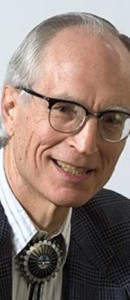OXFORD, Miss. – Multidisciplinary views of race and ethnicity in public arenas will be discussed Thursday and Friday (Oct. 23-24) at the University of Mississippi.
A symposium on “Symbols of Exclusion: The Semiotics of Race in Public Spaces” begins at 1 p.m. Thursday in the Overby Center auditorium. The public is invited to the event, co-organized by UM Critical Race Studies Group and the Jack, Joseph and Morton Mandel Center for Advanced Holocaust Studies of the U.S. Holocaust Memorial Museum. Its co-sponsors are the university and the Association for Jewish Studies-Legacy Heritage Jewish Studies Project.
Joe Feagin, the Ella C. Mc Fadden Professor of Sociology at Texas A&M University, lectures Thursday on “White Racial Frame: Racializing Racism.” On Friday, James E. Young, distinguished university professor in English and university studies at the University of Massachusetts at Amherst will address “How Do Nations Remember Their National Shame?” Both keynote lectures begin at 1 p.m. in the Overby Center auditorium.
The symposium also features four panel discussions consisting of scholars, professors and graduate students from the region, across the U.S. and Canada delivering papers about the uses of public space during the Holocaust, in the Jim Crow South and during other historical epochs. The first panel discussion begins at 3 p.m. Thursday; subsequent discussions commence at 8:30 a.m. Friday. All panel discussions meet in the Overby Center conference room, on the second floor.
“This symposium is the result of a unique vision and a tremendous amount of hard work on the part of Willa Johnson, her collaborators, Robert M. Ehrenreich and Krista Hegburg of the USHMM’s Mandel Center and the UM Critical Race Studies Group,” said Kirsten Dellinger, UM associate professor and chair of sociology and anthropology. “It is exciting to have such distinguished keynote speakers and a wide variety of panelists on campus to address the role of symbols in the perpetuation and elimination of racial inequality.”
John Sonnett, UM associate professor of sociology and co-chair of the Critical Race Studies Group, explained the significance of the program.
“The idea of semiotics tells us that symbols don’t inherently communicate meaning, but instead take on meanings given to them by people,” Sonnett said. “Social inequalities and historical contexts shape the kinds of meanings people assign to symbols, however. So to better understand symbols, we need to understand their social and historical contexts, which is what the symposium is focused on.”
Ehrenreich, director of University Programs at the Mandel Center, is equally excited about the program.
“We at the USHMM are pleased to have found such wonderful partners for this interdisciplinary symposium that explores emerging research on the memorialization of histories of racialized atrocities and nurtures collaboration among scholars of the Holocaust and the many other friends that are making significant contributions to this field,” he said.
To register for the panel discussions, go to ushmm.org/events/symbol-symposium/. For a detailed program, visit ushmm.org/mandel-center-symposia.
